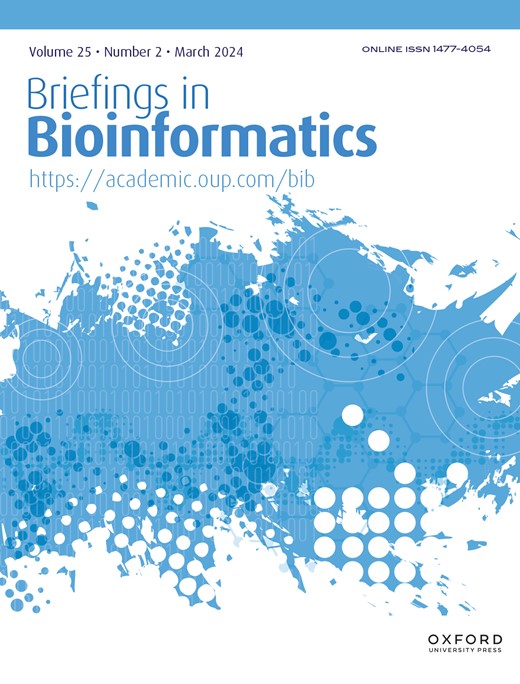GeneRaMeN enables integration, comparison, and meta-analysis of multiple ranked gene lists to identify consensus, unique, and correlated genes
IF 6.8
2区 生物学
Q1 BIOCHEMICAL RESEARCH METHODS
引用次数: 0
Abstract
High-throughput experiments often produce ranked gene outputs, with forward genetic screening being a notable example. While there are various tools for analyzing individual datasets, those that perform comparative and meta-analytical examination of such ranked gene lists remain scarce. Here, we introduce Gene Rank Meta Analyzer (GeneRaMeN), an R Shiny tool utilizing rank statistics to facilitate the identification of consensus, unique, and correlated genes across multiple hit lists. We focused on two key topics to showcase GeneRaMeN: virus host factors and cancer dependencies. Using GeneRaMeN ‘Rank Aggregation’, we integrated 24 published and new flavivirus genetic screening datasets, including dengue, Japanese encephalitis, and Zika viruses. This meta-analysis yielded a consensus list of flavivirus host factors, elucidating the significant influence of cell line selection on screening outcomes. Similar analysis on 13 SARS-CoV-2 CRISPR screening datasets highlighted the pivotal role of meta-analysis in revealing redundant biological pathways exploited by the virus to enter human cells. Such redundancy was further underscored using GeneRaMeN’s ‘Rank Correlation’, where a strong negative correlation was observed for host factors implicated in one entry pathway versus the alternate route. Utilizing GeneRaMeN’s ‘Rank Uniqueness’, we analyzed human coronaviruses 229E, OC43, and SARS-CoV-2 datasets, identifying host factors uniquely associated with a defined subset of the screening datasets. Similar analyses were performed on over 1000 Cancer Dependency Map (DepMap) datasets spanning 19 human cancer types to reveal unique cancer vulnerabilities for each organ/tissue. GeneRaMeN, an efficient tool to integrate and maximize the usability of genetic screening datasets, is freely accessible via https://ysolab.shinyapps.io/GeneRaMeN.GeneRaMeN 可对多个排序基因列表进行整合、比较和荟萃分析,以确定共识基因、独特基因和相关基因
高通量实验通常会产生排序基因输出结果,前向遗传筛选就是一个显著的例子。虽然有各种工具可以分析单个数据集,但能对此类排序基因列表进行比较和元分析检查的工具仍然很少。在这里,我们将介绍基因排序元分析器(GeneRaMeN),这是一种利用排序统计的 R Shiny 工具,可帮助识别多个命中列表中的共识基因、独特基因和相关基因。我们重点展示了 GeneRaMeN 的两个关键主题:病毒宿主因素和癌症依赖性。利用 GeneRaMeN 的 "等级聚合 "功能,我们整合了 24 个已发表的和新的黄病毒基因筛选数据集,包括登革热、日本脑炎和寨卡病毒。这项荟萃分析得出了黄病毒宿主因素的共识列表,阐明了细胞系选择对筛选结果的重要影响。对13个SARS-CoV-2 CRISPR筛选数据集的类似分析凸显了荟萃分析在揭示病毒进入人类细胞所利用的冗余生物途径方面的关键作用。利用 GeneRaMeN 的 "等级相关性",这种冗余性得到了进一步的强调,在其中观察到与一种进入途径有关的宿主因素与另一种途径之间存在很强的负相关。利用 GeneRaMeN 的 "Rank Uniqueness",我们对人类冠状病毒 229E、OC43 和 SARS-CoV-2 数据集进行了分析,确定了与筛选数据集定义子集唯一相关的宿主因子。我们还对跨越 19 种人类癌症类型的 1000 多个癌症依赖性图谱(DepMap)数据集进行了类似分析,以揭示每个器官/组织的独特癌症脆弱性。GeneRaMeN是一种整合基因筛查数据集并最大限度提高其可用性的高效工具,可通过 https://ysolab.shinyapps.io/GeneRaMeN 免费访问。
本文章由计算机程序翻译,如有差异,请以英文原文为准。
求助全文
约1分钟内获得全文
求助全文
来源期刊

Briefings in bioinformatics
生物-生化研究方法
CiteScore
13.20
自引率
13.70%
发文量
549
审稿时长
6 months
期刊介绍:
Briefings in Bioinformatics is an international journal serving as a platform for researchers and educators in the life sciences. It also appeals to mathematicians, statisticians, and computer scientists applying their expertise to biological challenges. The journal focuses on reviews tailored for users of databases and analytical tools in contemporary genetics, molecular and systems biology. It stands out by offering practical assistance and guidance to non-specialists in computerized methodologies. Covering a wide range from introductory concepts to specific protocols and analyses, the papers address bacterial, plant, fungal, animal, and human data.
The journal's detailed subject areas include genetic studies of phenotypes and genotypes, mapping, DNA sequencing, expression profiling, gene expression studies, microarrays, alignment methods, protein profiles and HMMs, lipids, metabolic and signaling pathways, structure determination and function prediction, phylogenetic studies, and education and training.
 求助内容:
求助内容: 应助结果提醒方式:
应助结果提醒方式:


